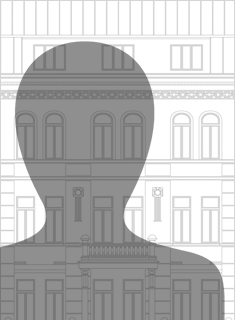Call for Applications 2025–2026
Objective and Eligibility
The Milena Jesenská Fellowship Program, named after the Czech journalist, writer, and translator Milena Jesenská (1896–1944), offers European (including Armenia, Azerbaijan, Georgia, and Turkey) journalists time off from their professional duties in order to pursue in-depth research on a topic of their choice.
Milena Jesenská Fellowships are intended as an award for excellence and are directed towards cultural journalists, with the term cultural being interpreted in a broad sense to encompass a wide variety of intellectual and artistic fields. However, applicants' work may also be related to one of the IWM's main research fields.
Applicants must have worked in print, broadcast, or online journalism for several years and must have an outstanding professional record. Applications by entry-level journalists or students will be rejected.
Conditions
During the next fellowship term (September 2025–June 2026), Milena Jesenská Visiting Fellows are invited to spend three months at the IWM in Vienna, Austria. They will receive a stipend of EUR 3,300 per month. In addition, the IWM provides them with an office including access to the internet, administrative and research facilities as well as other services free of charge. Generally, fellowships start on the first day of the month and end on the last day of the month.
Application
Applications must be submitted through the IWM's online application form; we will be unable to consider applications sent via email.
Application materials consist of the following:
- A brief letter of motivation that addresses how the project would benefit from time at the IWM, the connection to the IWM’s mission and research, and concrete research/writing goals during the fellowship
- A project description (max. 550 characters)
- A project proposal (max. 7,500 characters incl. spaces) containing a) a description of the project’s objectives, b) a discussion of the current state of the art, c) methods, and d) a work plan
- A curriculum vitae including a list of publications
- Two letters of recommendation are required: At least one from an editor, fellow journalist, or publisher. If applicable, one recommendation letter can also be provided by a scholar familiar with the applicant's work (Please note that the letters of recommendation need to be submitted directly by your referees within the application period. Your referees will receive an automatic email with a link to a webform after you have submitted your application.)
All application materials should be in English.
Important! Attached documents must be combined into a single PDF, as the online submission form only allows for one attachment. File names of attachments must use Latin characters.
The deadline for applications is 15 January 2025.
Selection
A jury of experts will evaluate the applications and select the finalists. Applicants will be notified of the jury’s decision in the spring semester of 2025.
The jury is not required to publicly justify its decisions, nor to provide applicants individual feedback on their applications.
Cooperation Partners
ERSTE Foundation creates innovation and social, economic, and cultural infrastructure for a changing Europe. The Foundation empowers initiatives for change and contributes to civil society development and regional progression. As core shareholder of Erste Group, ERSTE Foundation secures the independent future of one of the largest financial services providers in Central, Eastern, and South Eastern Europe. As a private Austrian savings bank foundation, it is committed to serving the common good. Its strategic goals are based on the belief that the European idea is worth fighting for and that culture is a central part of our identity. Every society needs culture: as a laboratory in which the past is considered, the present criticized, and the future imagined.
Project Syndicate, an association of more than 430 newspapers from all over the world, provides original, engaging, and thought-provoking commentaries by global leaders and thinkers.


Kasper Nowak
Fellowship Program Coordinator
fellowships@iwm.at
Milena Jesenská (1896–1944) was an outstanding journalist and mediator between the Czech and German cultures in Bohemia as well as an astute political commentator. She was detained in the Nazi concentration camp in Ravensbrück for her political involvement and resistance, losing her life there in 1944. She is widely known for her famous correspondence with Franz Kafka.




























































